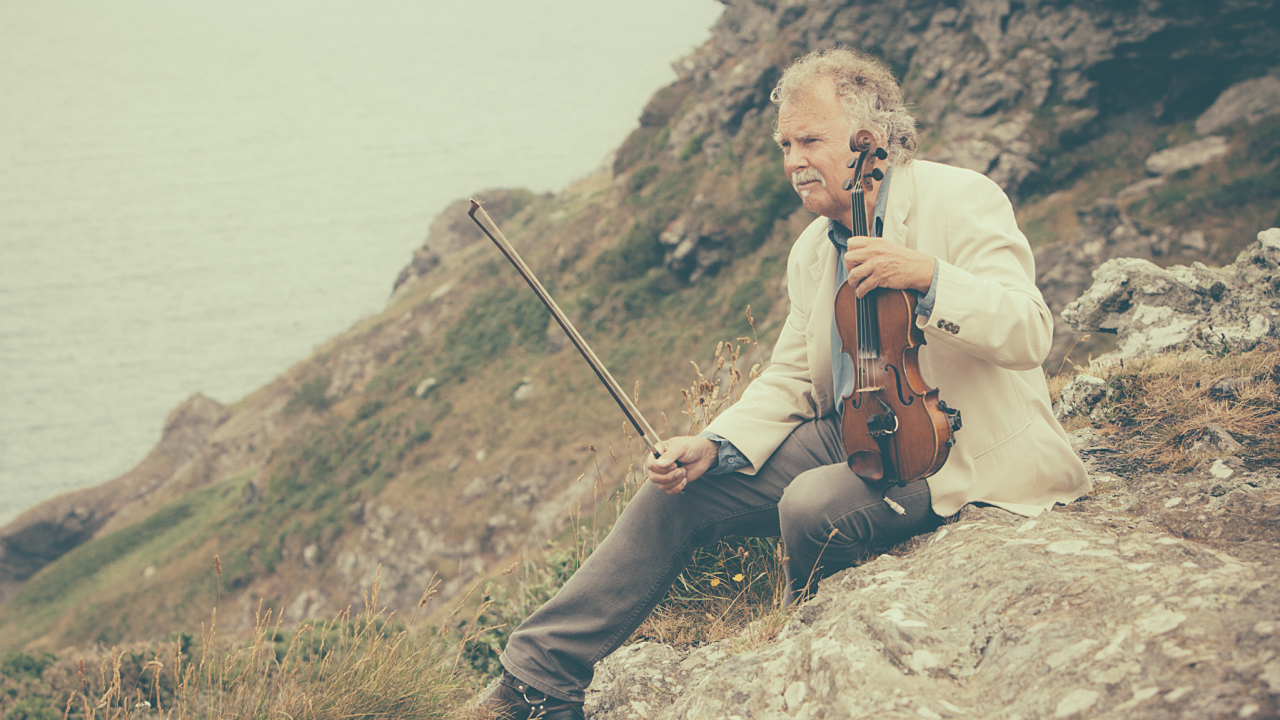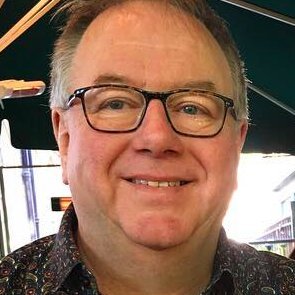“You could characterise Prog Rock as the musicians in the late 60s gaining autonomy,” says violinist Darryl Way. “They decided what should be played and what should not be played, as opposed to the record companies. They were experimenting.”
Back then the violin had been one of the principal instruments in folk for decades, but it was still a rarity in rock music. A prodigiously talented, classically trained violinist, Way was in search of new horizons. Like many he’d had his head turned by the possibilities opened up by The Beatles and he soon established himself as a major figure in the nascent progressive rock scene. He began with the group Sisyphus – with guitarist and keyboard player Francis Monkman – and the two formed the groundbreaking Curved Air in 1970.
Looking around for kindred spirits, Way recalls being particularly struck by a record sleeve photograph of American violinist Jerry Goodman, then in The Flock and later with Mahavishnu Orchestra
“He was the most famous rock violinist at that time and came to fame because he was on the front cover of Fill Your Head With Rock the CBS sampler that came out in 1970 that featured all their weird and wonderful acts,” says Way. “Here was a rock star playing the violin. He was classically trained and was an absolutely fantastic player.”
It was a striking image, with Goodman, hair flying, stripped to the waist, flesh tinged red from stage lights, looking every inch the demon fiddler.
Why American music developed along different lines to that in the UK and Europe post-psychedelia is a topic big enough to fill a book. But there is something broadly progressive in The Flock’s reading of The Kinks hit single, Tired Of Waiting, from 1969, with its tinges of Vanilla Fudge and Blood Sweat & Tears.
Curved Air’s music was a different thing entirely, and this song – one of the highlights on their 1970 debut Air Conditioning – exemplifies their inventive approach to song structure.
Darryl Way’s classical inclinations came to the fore on the Curved Air showstopper Vivaldi. Some prog groups were somewhat negligent in crediting classical composers whose compositions they had covered. But _Vivaldi _was basically of a fantasia based on a few bars of piece by the Italian composer and was in fact composed by Way. This is a particularly extravagant version.
High Tide were one of the few other UK Prog bands with a violinist, Simon House, who went on to play with The Third Ear Band, Hawkwind and had a spell with David Bowie. They only made two albums before breaking up in 1970, but had travelled from a fierce, almost heavy metal take on psychedelia on Sea Shanties to the proggier climes of their second self titled album.
East Of Eden formed in 1967 and remained a respected cult act apart from one brief glimpse of fame via an uncharacteristic single Jig-A-Jig which reached the Top 10 in 1971. (It also earned violinist Dave Arbus a high profile guest appearance playing on Baba O’Reilly on Who’s Next). Jig-A-Jig was a traditional instrumental medley the group played as an encore and given the odd range of singles that charted in the early 70s it was probably thought of as a kind of novelty number.
With its loose-limbed rhythm and unison melody lines, Take What You Need, from the group’s self-titled fourth album (1971) is far more typical.
When Curved air initially split in 1972, Way formed the short-lived Prog-fusion group Darryl Way’s Wolf, during which time he edged nearer the rock star image, playing a Perspex violin. His successor in Curved Air, Eddie Jobson – who had had covered Jig-a-Jig in the unfortunately named Fat Grapple - utilised a similar instrument when he jumped ship a year later to join Roxy Music.
Jeff Lynne formed The Electric Light Orchestra with Roy Wood and drummer Bev Bevan in 1970, all three being former members of The Move. Their debut album was wall-to wall cellos and featured the weird and ominous sounding hit single 10538 Overture.
Lynne had a vision of a string section integrated into a rock band to gave dramatic Prog-infused pop music and ELO went on to become one of the biggest groups of the 70s. On their ’76 hit, Livin’ Thing, Mik Kaminski’s rhapsodic solo violin cameos were a crucial component. Kaminski went on to score a hit single with Clog Dance - most definitely a novelty tune - as Violinski in 1979, but best gloss over that one.
There were more of course. There were excellent fiddlers in folk rock, but Ric Sanders straddled genres, playing with Fairport Convention and Soft Machine, while Graham Smith played in both String Driven thing and the more forbidding music of Van Der Graaf [sic] in 1977-78. Oddly enough, Caravan mainstay Geoffrey Richardson had to overcome a reluctance amongst some fans who thought his viola was anomalous to the group’s sound when he joined them in 1973.
Solstice formed in 1980 as part of the wave of neo-Progressive groups, but after long periods of on-off activity they have been in business again since 2007. The group’s original violinist Marc Elton retired with tinnitus and was replaced by violinist Jenny Newman from folk rock group Rock, Salt And Nails. This example of their folk-tinged Prog comes from a DVD of the band’s reunion show at Cropredy Festival, 1998.
All this history has been inexorably leading up to someone who is both a virtuoso Prog Rock violinist and the embodiment of the flamboyant rock star that Darryl Way saw in the photograph of Jerry Goodman. Step forward Anne Phoebe, who has guested with Jon Lord, Roxy Music and Jethro Tull, shared a stage with Aerosmith and is renowned for her spectacular live shows.
Her own music is an eclectic mix of classical, folk and rock, with Eastern influences. Band are pretty good, too.

